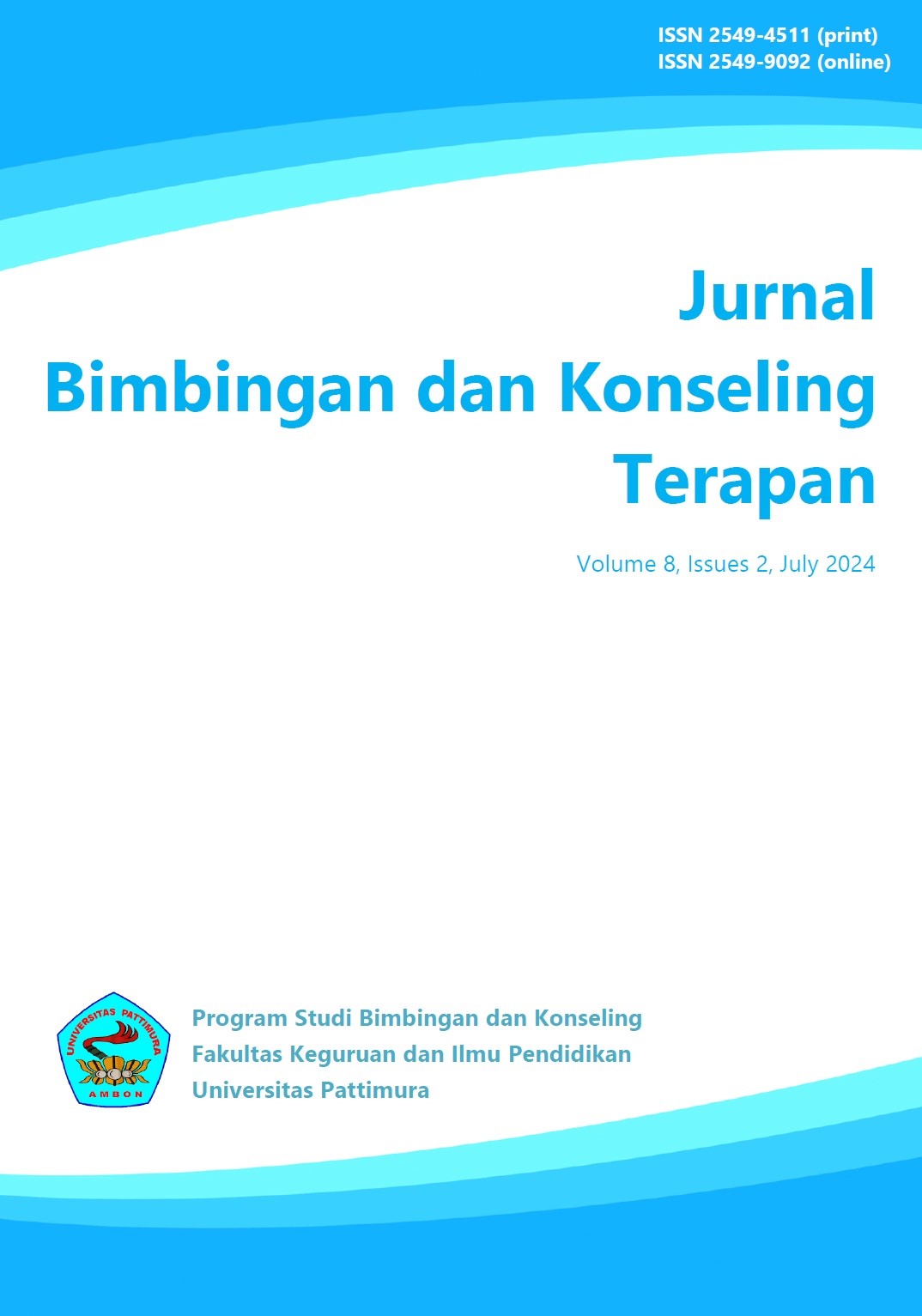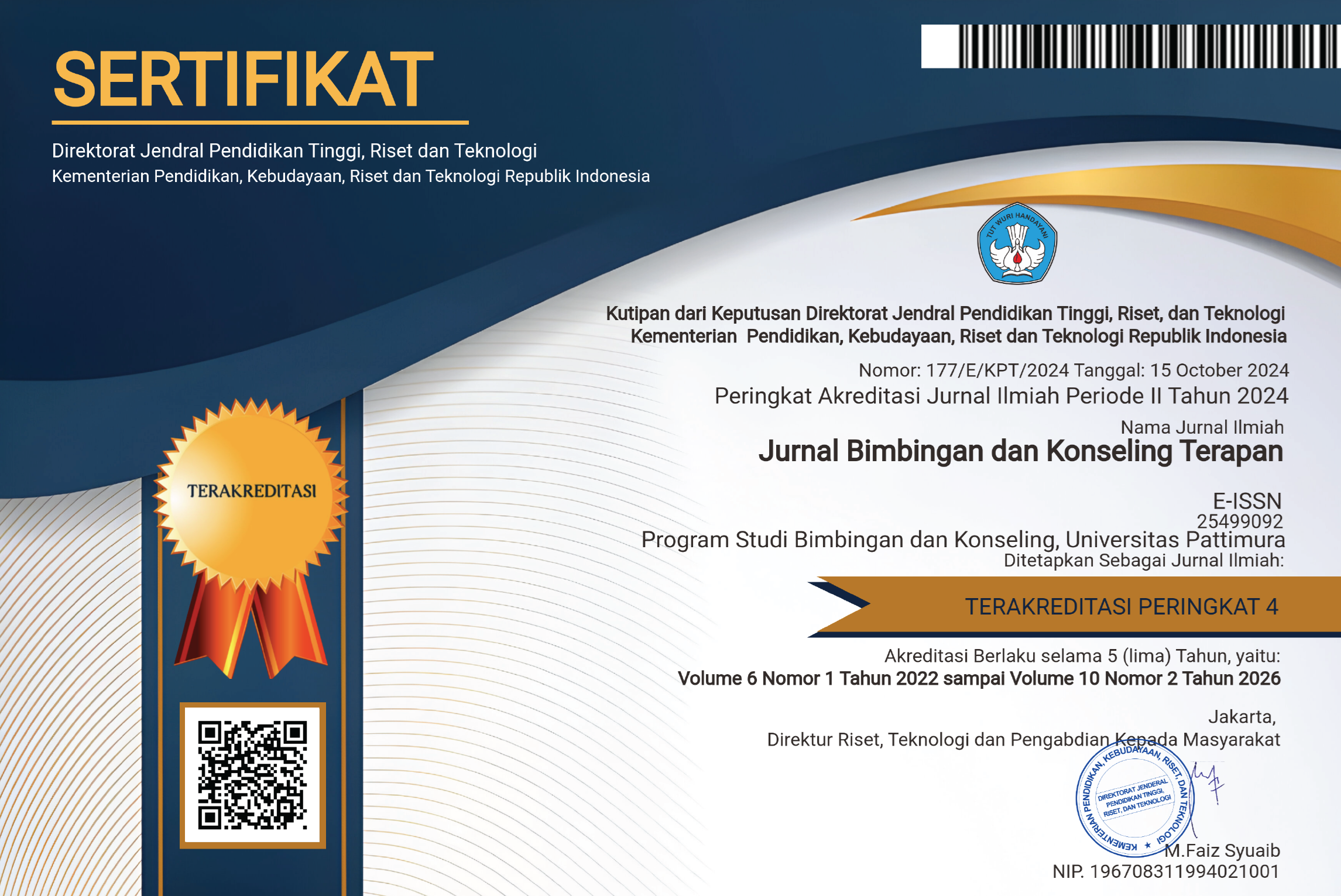Nomophobia and Self-Esteem: A Study of Migrant Students' Psychological Well-Being
Abstract
The transition from high school to higher education represents a significant milestone for adolescents, often accompanied by migration to access better educational opportunities, known as "merantau." This phenomenon, prevalent among students aged 18-24, is associated with a high prevalence of nomophobia, characterized by anxiety and discomfort when separated from smartphones. This study aims to explore the relationship between self-esteem and nomophobia tendencies among migrant students, given the mixed findings in existing literature. Employing a correlational quantitative research design, data were collected from 153 migrant students using the Nomophobia Questionnaire (NMP-Q) and the State Self-Esteem Scale (SSES). Descriptive analysis revealed that 74.5% of students exhibited moderate nomophobia tendencies, while 62.7% had high self-esteem. Pearson's correlation analysis indicated a significant negative relationship between self-esteem and nomophobia tendencies (r = -0.222, p = 0.006), suggesting that higher self-esteem is associated with lower nomophobia tendencies. This finding underscores the importance of enhancing self-esteem to mitigate nomophobia, highlighting the role of positive self-perception and real-life social interactions. Despite limitations such as the online data collection method, this study provides valuable insights into the psychological dynamics between self-esteem and nomophobia among migrant students, advocating for targeted interventions to address these issues.












